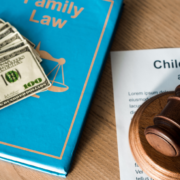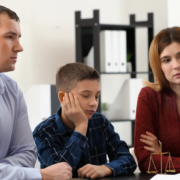Should Children Testify at Their Parent’s Divorce?
Whether or not a child testifies in Bucks County Family Court depends on the situation. Depending on the child’s maturity and what they would testify about, it may be a very good or very bad idea. If you think your child may be a witness in a family law dispute, contact Karen Ann Ulmer, P.C., so we can discuss whether there may be potentially more harm than good if this happens.
Deciding if and when a child should testify in a family law matter depends on many things, including the age, maturity, and emotional well-being of the child; the nature of the case; and the state’s laws and guidelines. Testifying is potentially distressing for a child for many reasons.
A child could be a fact witness if they did or did not witness a parent doing or saying something. If mature enough, they may testify in a custody matter about their preference and why they feel that way.
Here are some things to think about:
- Age and maturity: Young children might struggle to understand the legal process and express themselves effectively. Older children and teenagers may better grasp the situation and can communicate their preferences more clearly. But age does not guarantee maturity. Depending on the topic, a ten-year-old may be a capable witness while a 15-year-old may not.
- Emotional well-being: How might testifying affect your child’s emotional and psychological well-being? If testifying might cause undue stress, anxiety, or harm, it might not be in the child’s best interest to do so.
- Nature of the case: If the case involves sensitive issues such as abuse, neglect, or disputed custody disputes, the court might prioritize the child’s input to ensure their well-being and safety. In these cases, the court, with or without a parent making a request, may appoint an attorney (a guardian ad litem) to ensure the child’s best interests are met. Although the judge, not this attorney, has the final say, their position would carry a lot of weight.
- Alternatives to testifying in court: The judge may have the child testify “in camera” in their chambers, with the parties and attorneys present, to lessen the stress of the situation. The judge would ask the questions of the child, with the attorneys making suggestions.
- Child’s wishes: The child may want to testify. If the child is mature enough and a judge thinks their input in a custody case would be helpful, it may happen.
Depending on the situation, it may clearly be a good or bad idea that a child testify. If your case is not clear cut, the advice of an experienced family law attorney may be critical to handling the situation in a way that protects your interests and those of your child.
A Child’s Testimony Can be a Delicate Matter. Make Sure It Is Handled Properly
Any witness testimony can be critical in a family law matter, especially that of a child. The best way to avoid having a child testify may be to negotiate a favorable outcome prior to a trial so this problem never occurs. To learn more or discuss legal representation, call Karen Ann Ulmer, P.C., at (866) 349-4721 or book a consultation online.










